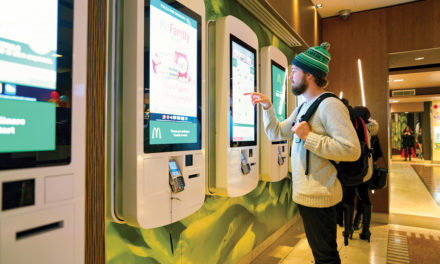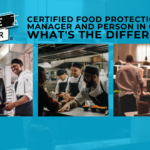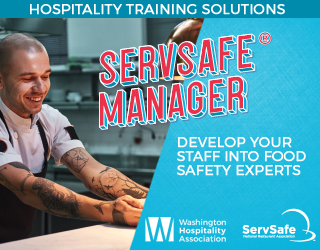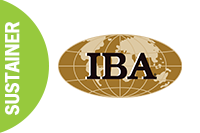Q&A
Your real-world questions answered by the Washington Hospitality Association
Q: What areas of the state are most likely to get big winter storms?
A: Counties most at risk of significant storms include those along the Pacific Coast, counties within the Puget Sound basin, counties along the east slopes of the Cascade Mountains, some counties in Southeastern Washington as well as Spokane County, according to the Washington State Hazard Mitigation Plan in April 2013.
Q: Can employees use paid sick leave if they decide not to come to work because of icy or snowy roads?
A: No. Washington state’s law only allows paid sick leave to be used if the school or daycare is closed because of health reasons, not snow or inclement weather. Employees can only use paid sick leave if a closure coincides with a sick child or dependent, according to state law. The one exception is the city of Tacoma, where the law allows employees to use paid sick leave if a public official, like a school district superintendent, closes schools.
Q: Do employees get premium pay under Seattle’s Secure Scheduling Ordinance if we close because of weather?
A: Seattle’s Secure Scheduling Ordinance grants a premium pay exception for inclement weather, according to the city’s website. Employers who must comply with the ordinance do not have to pay premium pay if inclement weather closes the business.
Q: If we close because of weather, employees don’t get paid, right?
A: If an operation is closed because of weather, exempt employees are paid regardless. Hourly employees are unpaid unless there is a policy for paying them if they show up to work. If employees arrive and the business is closed within 15 minutes (or at any time after their scheduled shift should start) the employee should be paid for that time. Also, if an hourly employee does not show up for work during inclement weather, then vacation/PTO can be used by the employer if that is the set policy.
Q: My vendors will continue to deliver in winter storms, right? If I stay open – they will provide my food and de-icer?
A: Whereas your supplier might be making deliveries, mountain passes do close, and this can impact your supplier’s inbound freight. Delivery drivers are not the only people on the road, and you should be prepared for delays. Consider temporarily increasing your inventory on hand to get you through a day and a half on some of your critical items.
Q: My team was cooking when the power went out. Can I serve what was on the grill?
A: Check their temperatures. Throw away any foods that are in the process of being cooked but have not yet reached their final cooking temperature.
Q: The power went out, but went back on pretty quickly. Do I need to toss what was in my front case?
A: A power outage of two hours or less is not considered hazardous to food that was being held under safe conditions when the outage began. After power is restored to your restaurant, the Department of Health recommends checking the internal temperatures of hot and cold foods to ensure they are still safe to serve. Its website has handy temperature charts.




























